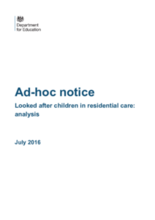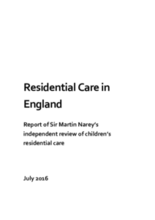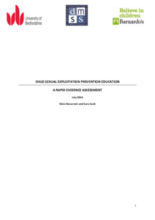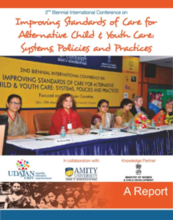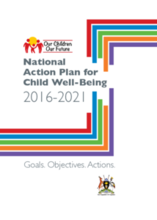Demographic Data
|
Sources: World Bank, UNICEF, UNDP HDR 2015, DHS 2011 |
Displaying 10441 - 10450 of 14391
This analysis was produced as part of an independent review into children's residential care in England and provides data on children living in all types of residential care facilities in the country as of 31 March 2015.
On 28 October 2015 the Prime Minister of the UK told the House of Commons that he and the Secretary of State for Education had commissioned Sir Martin Narey to review residential care for children in England.
This document is an adapted presentation created by Florence Martin of Better Care Network and Katie Rice of Save the Children UK describing the Tracking Progress Initiative.
This briefing is based on a rapid assessment of the available evidence relevant to CSE prevention education. It brings together key messages from research and evaluation about what works to prevent sexual exploitation and promote healthy relationships.
This document discusses how there is increasing international mobilization around the importance of family care for optimal child development.
This infographic produced by Better Volunteering Better Care explains in an accessible way why we should say NO to international volunteering in orphanages (residential care centres).
This paper is the investigation of the level of teachers’ preparedness and their ability to deal with learners from child headed households (CHHs) in their (learners) academic pursuits.
This report contains detailed discussions that occurred during conference sessions. The first day focused on Caregivers. The second day focused on aftercare services. This report contains Article 20 UN Convention on the Rights of the Child. It provides background information on alternative care, which includes a definition and an overview of the alternative care situation in South Asia. It also includes some key guidelines from the UN Guidelines for the Alternative Care for Children.
This study assesses the effects of institutional care on social interaction anxiety in children and further assesses the role of social interaction anxiety in emotional and behavioral problems in children.
In this National Action Plan for Child Well-Being, Uganda spells out goals, plans, and actions it needs to take to improve child well-being in Uganda. The document points out that 62 percent of persons living in poverty are children. It notes that 33 percent of children under 5 are stunted, and it further states that only 37 percent of children make it to secondary education.

